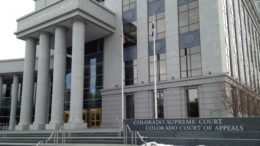During the pandemic, Colorado’s judicial branch offers (temporary) remote access to civil court records — at no charge
With the Colorado Supreme Court library in downtown Denver “closed until further notice” because of the COVID-19 pandemic, the state’s judicial branch is finally letting anyone pull up civil case filings on a personal computer at no charge — at least temporarily.









